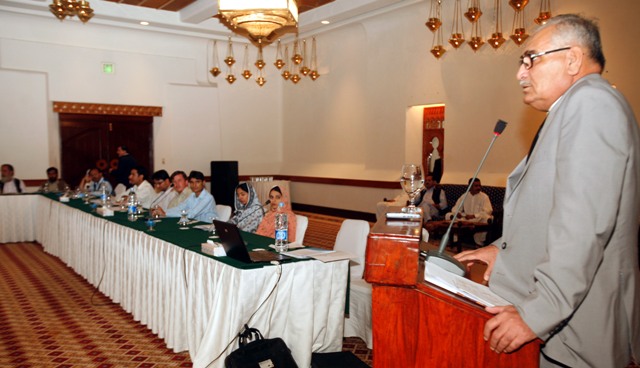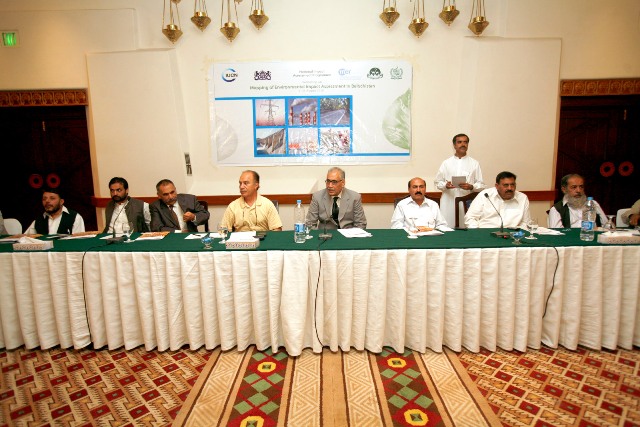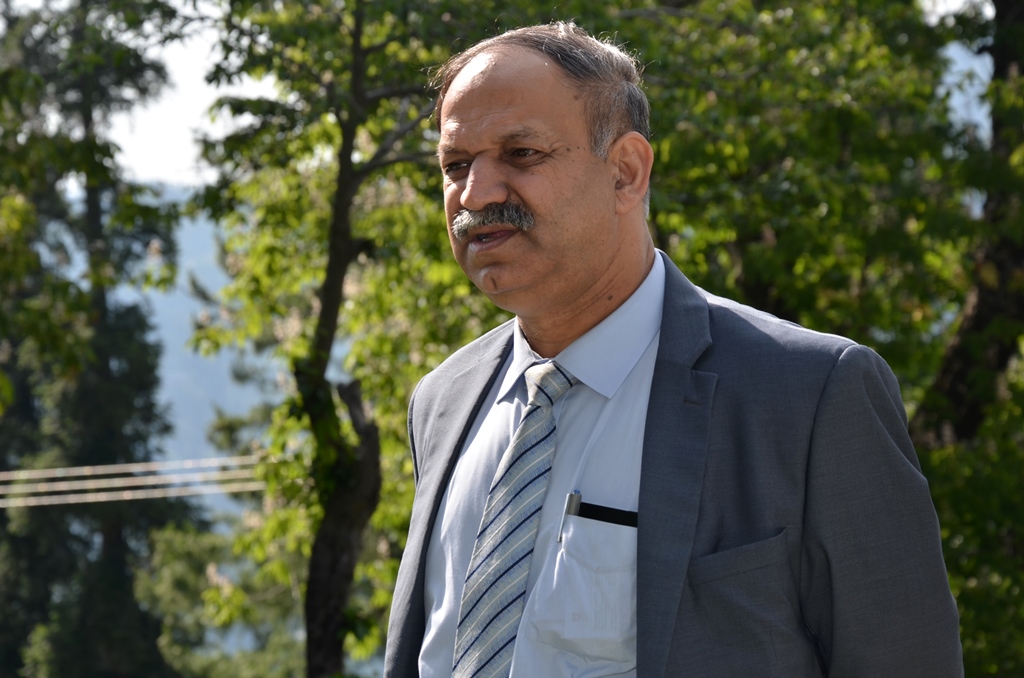Mapping of EIA Processes in Balochistan
Quetta, August 5, 2010 (IUCN) – Environment Protection Agency of Balochistan in collaboration with IUCN Pakistan organized a Workshop titled “Mapping of EIA Processes in Balochistan” at Quetta Serena today. The workshop was conducted & facilitated by Mr. Ahmad Saeed & Mr. Muhammad Aqib of IUCN Pakistan.
The workshop brought together relevant stakeholders including Provincial & Federal governmental institutions, civil society organizations, private sector, international organizations, academia and environmental experts/consultants.
EIA (Environmental Impact Assessment) map is an instrument that maps the strength and weaknesses of an EIA system with respect to how it is organized formally as well its implementation in practice. The EIA map can contribute to the formulation of priorities for EIA strengthening. In addition, an EIA map provides a useful reference for monitoring and evaluation purposes.
EIA was introduced as a requirement in Pakistan under Pakistan Environmental Protection Ordinance (PEPO) 1983. Later PEPO was replaced by Pakistan Environmental Protection Act 1997 (PEPA’97), which further strengthened EIA as a legal requirement and also introduced IEE / EIA Review Rules 2000.
In his welcome address Mr. Nasir Ali Khan on behalf of Pak - EPA said that Pakistan is paying a very high price for environmental degradation. Rs. 365 billion per annum or Rs. 1 billion per day are the figures calculated by the World Bank to access environmental damages in Pakistan. Keeping in view the compliance and monitoring aspects which are becoming more and more stringent internationally, we need to improve our planning, monitoring and implementation tools. One way of doing this is to introduce Strategic Environmental Assessment (SEA) at policy levels and proper enforcement of EIA at project levels.
To overcome the environmental challenges which are so broad and daunting, Netherlands Government supported us to start a National Impact Assessment Programme to improve environmental assessment mechanism. I would like to acknowledge the efforts made by IUCN to conceive this project. He also assured his full support and cooperation on behalf of Pak – EPA.
Mr. Zabardast Khan Bangash (Manager IUCN Quetta Office) in his welcoming remarks enlightened the history of IUCN Pakistan, National Impact Assessment Programme and on the importance of quality EIA process. He hoped that during 2 day workshop and after having the valuable inputs of the participants we will move forward in a better way and will know where we stand, what our strength & weaknesses are. Especially would help to enhance the capacity of EPA staff & Consultants. He said IUCN is playing a vital role in research & development, documentation and capacity building. Younger generation is our asset and we need to develop our human resource and this will be our future investment he added.
Honorable Secretary Environment, Sports and Youth Affairs Mr. Munir Ahmad Badini praised IUCN for the efforts being made particularly for Balochistan province in the field of conservation & sustainable development. He enlightened on the importance of this workshop. He also added that we are paying high price due to degradation of environment and which could be addressed through conduction proper EIA’s and rising relevant awareness at all level. He also ensured his support for this project on the behalf of Government of Balochistan.





